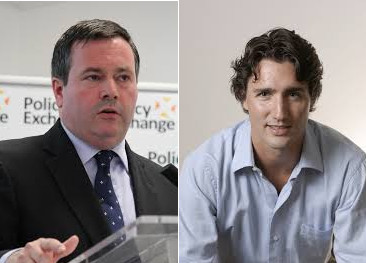 We often hear about Canada being one of the largest oil producing nations in the world. On the Canadian government website it is proudly announces these key facts:
We often hear about Canada being one of the largest oil producing nations in the world. On the Canadian government website it is proudly announces these key facts:
- Canada is the fourth largest producer and fourth largest exporter of oil in the world
- 96% of Canada’s proven oil reserves are located in the oil sands
- 96% of Canada’s oil exports go to the U.S.
- GHG emissions per barrel of oil produced in the oil sands have fallen 28% since 2000
This was Canada’s position at the end of 2018. China has actually moved up to fourth place putting us at fifth. There are those that take a lot of pride in proclaiming this fact, but it isn’t to be bragged about.
| United States | Saudi Arabia | Russia | China | Canada |
| 15 billion | 12.4 billion | 11 billion | 4.9 billion | 4.6 billion |
Although China isn’t ahead by much, there isn’t any comparison of our production compared to the other three. For that matter, Iraq and Iran aren’t far behind us. These four could be described as minor producers. But hey! Who wants to play in the minors? Much better to be the fifth largest. It’s good for our self esteem, if nothing else.
Then again service-producing industries, industrial production, manufacturing, real estate/rental and non-business sector industries show a higher GDP at basic prices. With better incentives, loans and tax breaks these industries could be encouraged to increase production and development. Lower prices for oil and gas wouldn’t be as devastating to the country compared to what we are seeing now.
Transitioning to sustainable energy resources would increase the GDP. Jobs would be created and people would be healthier. A majority of this can’t be exported but there would be a lot of good paying jobs for years. A progressive government would understand this and prepare for it. As it is, Alberta premier Jason Kenney called the energy transition an ‘ideological scheme ‘ .
“These are all exceptional initiatives that will assist in bringing back a more stable investment environment in Alberta and Canadian energy and bring back foreign and Canadian investment in energy — and job opportunities for Albertans,” he said.
The federal and provincial government feverishly support the oil and gas markets. The Paris Agreement wasn’t legally binding and the rhetoric spewed by politicians was self-gratifying, ambitious and lies. There isn’t any question Canada will miss the emission targets the government set for the country. With the lack of diversity and government support in the country, it isn’t much wonder we are referred to as laggards.
Aaron Wherry’s article on the CBC website suggests we may need a climate law. He claims last fall ‘s campaign Trudeau promised to set “legally-binding” emissions targets. However, this isn’t the first time a politician has made a promise. If such a promise was going to be a new reality, the first thing to do would be to stop all the oil and gas subsidies that was also promised during a previous election.
Something has to happen.
 We often hear about Canada being one of the largest oil producing nations in the world. On the Canadian government
We often hear about Canada being one of the largest oil producing nations in the world. On the Canadian government 